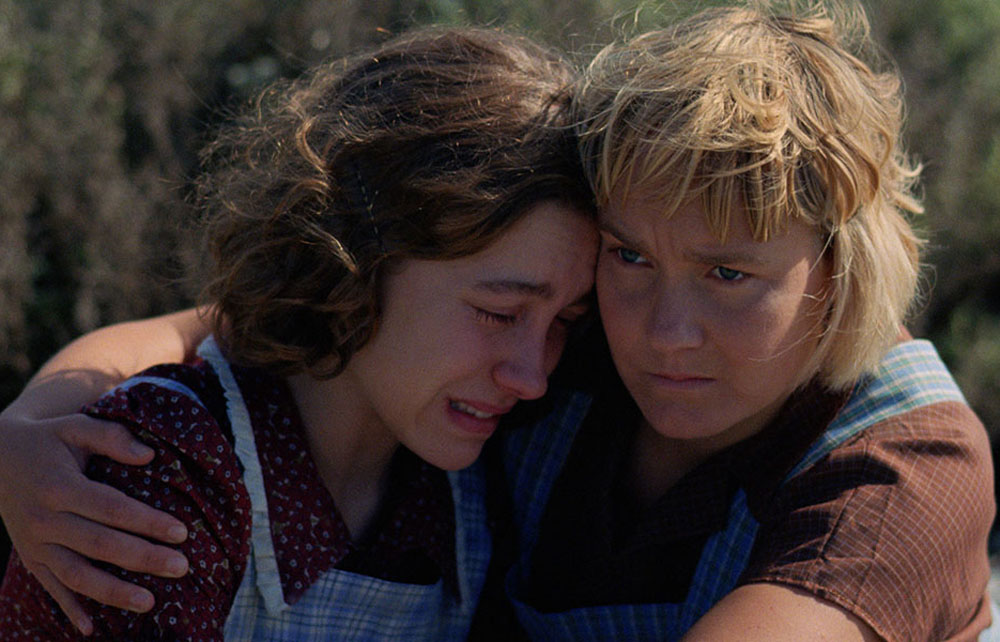It takes Sørine (Jessica Dinage) by surprise in “Unruly” to hear Maren (Emilie Kroyer Koppel) ask whether it would be okay to design her own dress pattern for her stay on the island of Spragø. There are no rules against it, but there are three ready-made patterns to choose from and such is the culture of conformity in Denmark during the 1930s that it’s nearly unimaginable to veer from the preordained. Neither woman would be on the island if they hadn’t already been seen as straying from that path at some point, now sequestered to a place that looks like a vacation house sitting by the sea with idyllic gardens along the cliff, but actually is women’s psychiatric institution where they work the fields, among other domestic chores designed to take their thoughts away from doing what they actually desire.
The gilded cage is a unique setting for what is an unfortunately common story across both time and space, as the second feature from Malou Reymann will no doubt remind audiences of a number of films such as “Girl, Interrupted” or more recently “The Mad Woman’s Ball” where women thought to be clinically insane are far more level-headed than those who have locked them away. However, “Unruly” will also remind of those compelling dramas as one in its own right, following Maren as she dances the night away in her small hometown where neighbors take notice and their reports give the local authorities, which actually has a public morals division, the evidence they need to haul her away after she loses her job at the local sewing factory after a few too many late arrivals.
At Spragø, it’s telling that the sewing room is a bright blue stands out amidst a generally muted palette as Maren actually seems to light up at the notion of sewing when it could lead to creativity and camaraderie with other women that have been sent to the institution for the same specious reasons she has. When it’s the enigmatic quality that Koppel gives Maren that is bound to fascinate, Reymann is careful to let the world around her speak to what she’s feeling, particularly in her use of a sensational score from Lisa Montan where various emotions would seem to attach themselves to different musical styles, and she impressively articulates parallels that are largely happening away from the action as one can consider why Maren is apprehended for the same behavior that her absent father, ignoring the four children his wife is overwhelmed taking care of, is never questioned about and more generally, the threat of sterilization that is used to keep women in check while their sexually promiscuous male counterparts face no such consequences.
Surely Doctor Wildenskov (Anders Heinrichsen) and Miss Nielsen (Line Maria Christensen), who hold all the power at Spragø, are identified as villains, but Reymann and co-writer Sara Isabella Jønsson Vedde resist making them anything other than functionaries of a diseased system, and the filmmakers are wise to give equal weight to Sørine as they do to Maren when the former starts to realize that her stay has exceeded any reasonable length for her perceived trespasses and begins to question the responsibilities that Miss Nielsen gave her, once so emboldening when she was made to feel as if she failed everyone and now fearing she’s doing the same to others after falling in line. When complicity in systematic oppression hasn’t aged a day, but instead simply taken new forms, “Unruly” is a film that meets the moment, unshakeable in its warning that history could repeat itself.
“Unruly” will screen again at the Toronto Film Festival on September 14th at 9:05 pm at the Scotiabank and will be available virtually in Canada from September 15th through the end of the festival.




